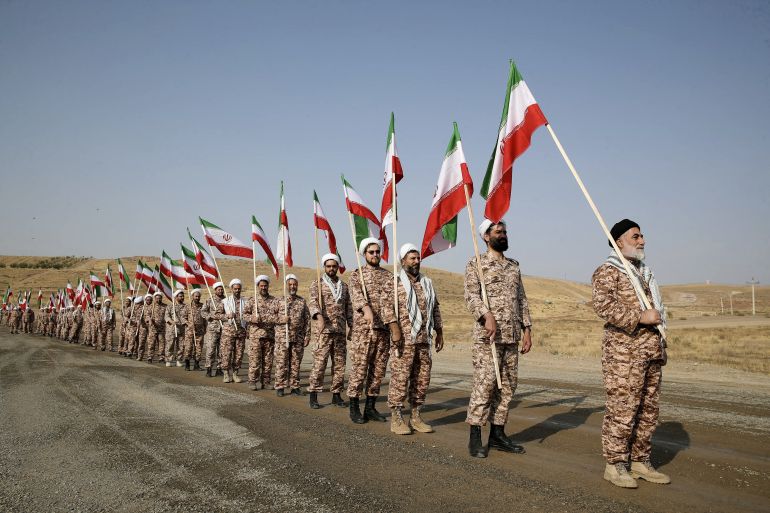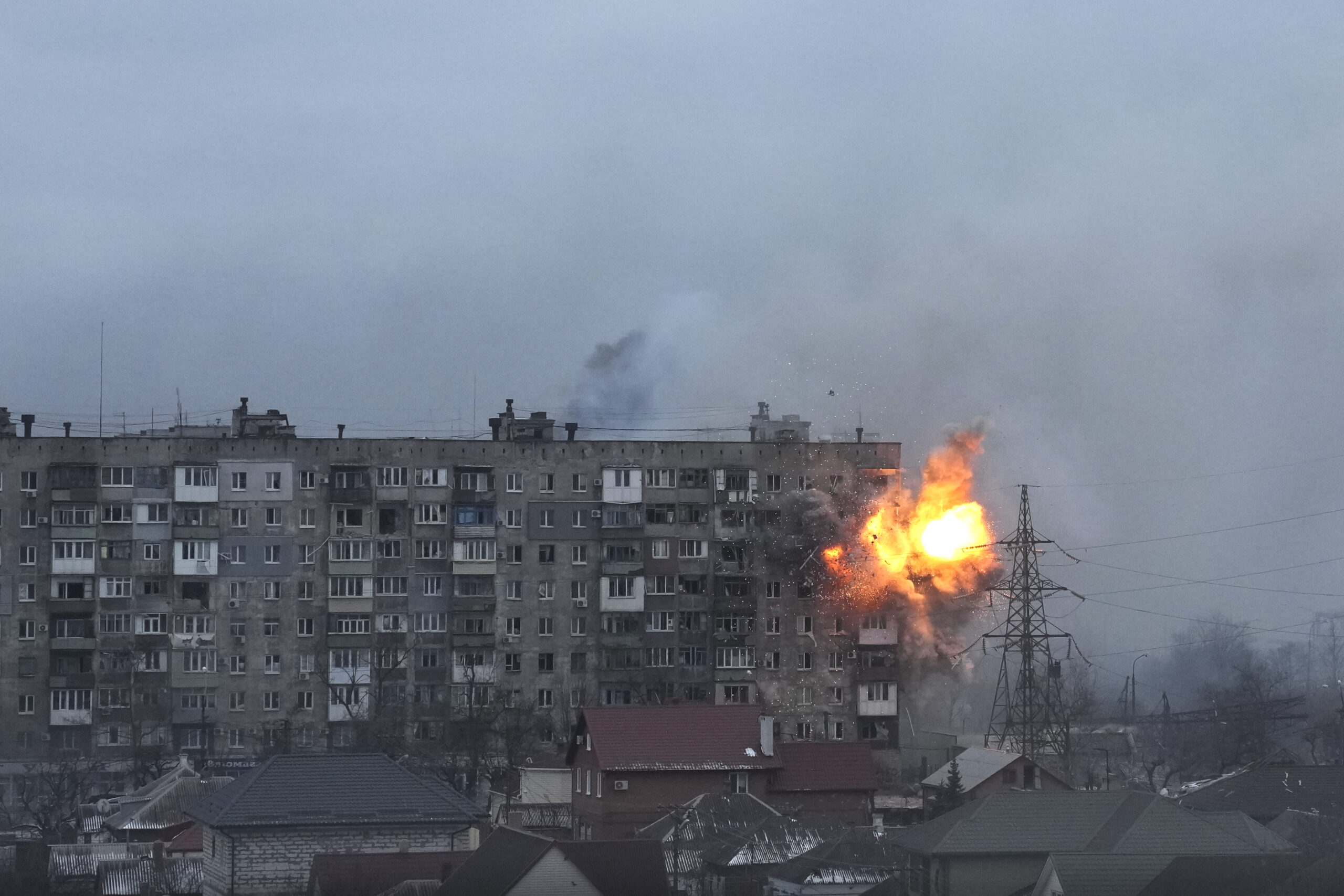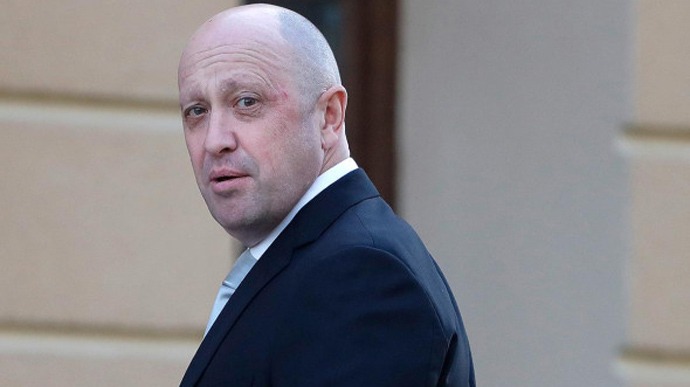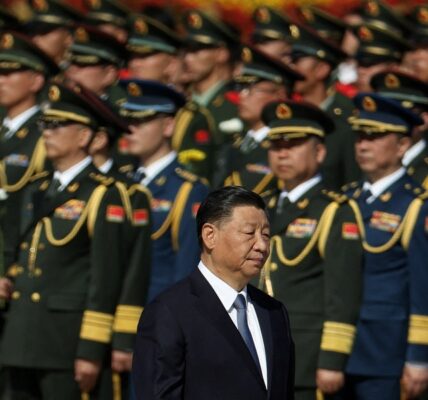Government Must Urgently Outlaw Iran’s Revolutionary Guard, Warns British Counter Terrorism Expert
The government has come under renewed pressure to designate Iran’s revolutionary guards as a terrorist organisation following the disclosure that the group poses a direct threat to the UK’s national security.
A former British government counter-terror chief said that Iran’s Islamic Revolutionary Guards Corps (IRGC) should be proscribed immediately and claimed the group had been responsible for the murder of dozens of British soldiers.
Colonel Richard Kemp, a former infantry commander and security expert, said the government had a duty to ban the IRGC, which he said was responsible for multiple terrorist attacks
His calls follow the disclosure that the danger posed by the Iranian para-military force was the biggest threat to UK national security.
Home Secretary Suella Braverman was reported as being concerned that the group is ramping up its activities following intelligence reports that Iranian spies are trying to recruit organised crime gang members to strike out at regime opponents.
The 90,000 strong Iranian militia was placed on the terrorist list by US President Donald Trump in 2019, when his administration withdrew from the Iran nuclear deal, which had restricted the Islamic Republic’s nuclear activity in exchange for sanctions relief.
President Joe Biden then decided to keep the group on the terrorist list in April this year after discussions with then-Israeli Prime Minister Naftali Bennett.
But despite IRGC’s involvement in terrorism and murder the UK government decided not to label the group a terrorist group organisation and instead chose to expand the criteria by which supporters and companies can be put under sanctions.

Speaking exclusively to NSN, Col Kemp, who worked for the Joint Intelligence Committee while attached to the Cabinet Office, said: “For years the IRGC has been attacking us at home and abroad, either directly or using their terrorist proxies.
“They killed many British troops in Iraq and Afghanistan, murdered a British crew member on board a ship off the coast of Oman in 2021 and set up a bomb factory in London using their proxy Lebanese Hizballah in 2015.
“IRGC sponsored terrorist cells are in place in Britain and elsewhere in Europe planning and preparing attacks against Iranian dissidents and British citizens, with at least 15 plots detected by our security authorities in the last year.
“Meanwhile IRGC commanders are hosted in Britain to spread their poisonous propaganda among university students including incitement to violence against non-Muslims. “While Britain invests millions of pounds supporting our Ukrainian allies, the IRGC supplies attack drones to Russia to murder Ukrainian civilians. It is outrageous that the U.K. continues to refuse to proscribe the IRGC as a terrorist group which would help to curtail their activities here and around the world. This failure to act endangers British citizens’ lives both here and abroad. The government has a duty to immediately proscribe this murderous group.”

The IRGC, the branch of the Iranian Armed Forces responsible for the internal and external security of Iran, has been at the forefront of the repression of protest in Iran which has seen more than 500 killed and tens of thousands imprisoned.
The IRGC, the Basij Resistance Force, the “morality police”, and Basij commander Gholamreza Soleimani have already been placed under sanctions, but proscription would have made it a criminal offence in the UK to belong to the group, fund or express support for its activities.
It would have effectively labelled the entire Tehran regime as a terrorist group since the IRGC is so central in the Iranian military structure.
Proscription would probably have led to the expulsion of the UK ambassador to Tehran, a move which the Foreign Office feared would not be reciprocated by the EU.
Instead, the Foreign Office said it was expanding the sanctions criteria because “Iran has increased its efforts to kill or kidnap individuals perceived to be enemies of the regime outside of Iran, including in the UK”.
Since the start of 2022, the UK has responded to more than 15 credible threats to kill or kidnap British or UK-based individuals by the Iranian regime.
In particular, there have been claims of plots to assassinate reporters from Iran International, previously based in London, the Saudi-backed satellite channel beaming into Iran.
In April, 125 MPs, including more than 90 Conservatives, had also called for the IRGC to be proscribed as a terrorist organisation. The letter sent by the all-party British Israeli parliamentary group said: “The government must follow its earlier decisions to proscribe Hamas and Hezbollah as terror groups by going ‘after the parent organisation’ because it is the ‘primary financier, supplier, and trainer of these dangerous groups’.”



























































































































































































































































































